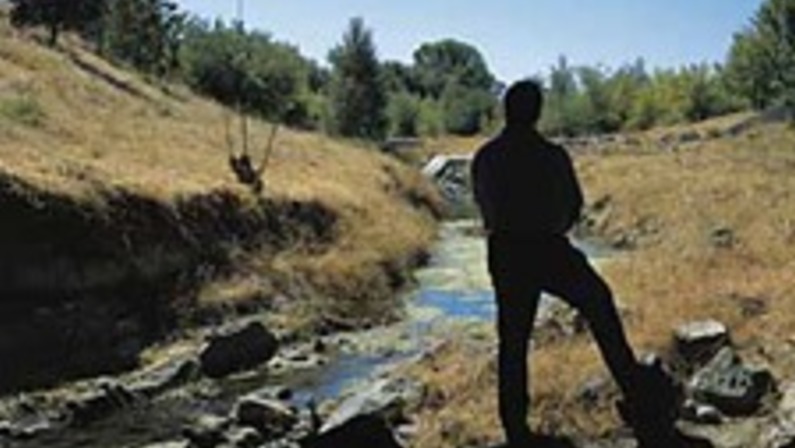
Free to Learn
After decades of war, neglect and oppression, Afghanistan is emerging from a dark age. Educator Zaher Wahab made good on a promise and went back to help.
by Angie Chuang

Boy, Interrupted
One moment Joe Kay was on top of the world a star athlete and gifted scholar with dreams of Stanford ahead. The next he was in the hospital, trying to get his life back.
by Christine Foster

Regarding Ernest Johnson
Forgotten for almost a century, Stanford’s first African American student has had his legacy restored. And the alumnus who honored him has gained back a piece of his past.
by Jocelyn Wiener

Betting the Ranch
On a sprawling Montana spread, Roger and Cindy Lang hope to make ranching and sound environmental practice synonymous.
by Paul Rogers

Net Assets
Buoyed by a federal grant to develop digital research tools, Stanford's computer science department turned its graduate students loose on an intriguing problem-solving exercise. Ten years later, their work has produced virtually every significant Internet search innovation and spawned the world's most popular librarian, Google
by Richard Brandt

Teaching Apathy?
Researchers in the School of Education may have found a clue as to why young people don't vote. In a survey of high school student councils across the country, they found that students' first experiences with representative democracy, the high school election, is often considered a joke.
by Marina Krakovsky

The Cleaning Agent
During 20 years of advocacy, Ted Smith has helped write environmental law and reform the computer industry's thinking about toxic waste they produce. With so many victories, isn't he ready to relax? Not by a long shot.
by Joan O’C. Hamilton

Slice of cheese pizza at Tresidder Union: $2.75 Econ 1 textbook: $123.56 Undergraduate tuition: $29,847 Bloomingdale's across the street . . . Priceless
Fifty years ago, Stanford broke ground on a development project unheard of in higher education: a campus shopping center. It became one of the world's most profitable retail spaces, and contributed hundreds of millions to Stanford's bottom line.
by Jesse Oxfeld
Totally On
Today's students, weaned on technology, express both delight and disdain for the gadget-driven culture they inhabit. Are their lives better, or just better equipped?
by Christine Foster

On the Originality of Species
Is Darwin s theory of sexual selection large enough to explain sexual behavior? Biologist Joan Roughgarden says no, and her new book suggests an outright abandonment of the fundamental tenet she says promotes bad science and social injustice.
by Bob Moser


